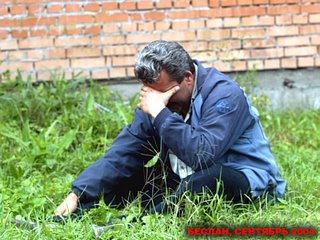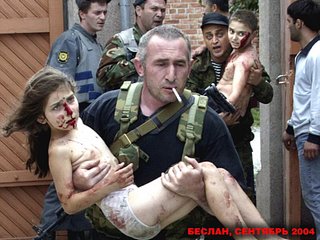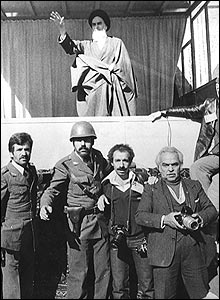[Part I of this series can be found here. Part III is here.]
Shapour Bakhtiar took office as Prime Minister of Iran on Jan 6, 1979. He was appointed by the Shah in one of the latter’s final acts in Iran, a country from which the Shah departed on Jan 16.
But Bakhtiar was not the Shah’s man. He was a well-known dissident who was appointed in an effort to show that the Shah was ready to reform in ways that would satisfy those who were proponents of greater freedom and civil liberties in Iran.
The Shah is one of those figures in history who, like Ataturk in Turkey, was faced with the dilemmas common to those who would modernize and Westernize a third-world country, and especially one with a strong traditional Islamic clerical tradition. It is beyond the scope of this post to discuss why Ataturk was able to successfully buck the fairly substantial opposition of religious leaders and the populace in Turkey, and why the Shah’s effort ultimately failed in Iran. Some day I may attempt to tackle that one–but suffice to say for now that the Iranian Shah had the same goal of modernization as Ataturk, but the opposition to his rule was stronger, and his efforts to crush it far more Draconian.
The Shah’s secret police–SAVAK, usually referred to with an adjective such as “dreaded” or “hated” before the acronym–was active in Iran to stifle those who would oppose him. There is a great deal of controversy over just how dreadful SAVAK actually was in the larger scheme of things. Was it a wide-ranging and indiscriminate effort to track down, torture, imprison, exile and/or murder all those who dissented, or who even were thought to dissent, much like the operations of the Soviet KGB? Or was it far more benign, only dealing with those who would violently overthrow the government (such as Khomeini and his henchmen), and using torture only sparingly? If history is written by the victors–and, in this case, the victors so far in Iran have been the Khomeinists–then how can we know the truth about SAVAK?
What we do know, however, is this: there were many protests against the Shah’s modernizing changes, which especially threatened the religious establishment in Iran. For example, religious students demonstrated against land reforms that the Shah had instituted to try to offer the populace of Iran some economic benefits, with the goal (among other things) of increasing his popularity with them.
If that was the Shah’s intent, it backfired, because the land reforms imposed hardships on the Shiite clerical establishment (which had owned some of the land). Khomeini, who was still in Iran at the time, issued a fatwa. Protests were organized, the Shah’s government began to ridicule the clerics as old-fashioned, and more clerics took offense and joined the opposition. In addition, crackdowns on protesters became very brutal–for example, a group of theological students protesting against the opening of liquor stores were killed, and these deaths ultimately reached into the hundreds.
It appears that the Shah was already fighting the same extreme fanatics who were to take over the country in 1979. As often happens, his efforts to stop them had the paradoxical effect of making them martyrs, agitating their sympathizers, and ultimately making the movement against him grow stronger. Had his policies against his enemies–the enemies of modernization–been less heavy-handed, might the movement have died down? Or would it only have grown larger and more powerful more quickly? Unanswerable questions, I’m afraid.
History gave its own answer. I’ve written before about how the Shah had hesitated to have Khomeini executed in 1964 when the latter was imprisoned, because the Shah feared making the already popular and powerful cleric into a martyr. Perhaps if he’d done so others would have filled Khomeini’s shoes and carried on in his name, and history would have taken more or less the same course as it ultimately did.
But perhaps not. Perhaps there was something especially charismatic about Khomeini that would have been lost to the clerics’ cause without his particular presence. Once again, we’ll never know; what we do know is that Khomeini’s life was spared, he was ultimately exiled, and he lived to return to Iran in triumph and take over the government. As unrest and discontent with the Shah was brewing in the late 1970s, Khomeini became the de facto head of the opposition, which was a strange amalgam of restrictive clerics, liberals who supported human rights, and socialists–each with an agenda, each jockeying for position:
Anti-Shah intellectuals, secular and Islamic, moderate and leftist misread developments. They believed that they were using the popular Khomeini and that he could be shunted aside as democracy was established. It was believed that with the success of the revolution the ulama (official community of scholars of Islam) and Khomeini would return to their mosques and schools and perhaps advise the government on Islamic matters.
Such hubris is misplaced. The moral of the story is to never underestimate the power of a demagogue fully bent on acquiring it (the same mistake was made, by the way, by Franz von Papen and Hindenberg. In the waning days of the Weimar Republic, they thought they could “control” that silly-looking upstart, Hitler.)
Which brings us to Bakhtiar. On Bakhtiar’s appointment as the new Prime Minister, Khomeini condemned him, of course, from his exile in France. But Khomeini continued to live his charmed life; Bakhtiar allowed him to return to Iran shortly thereafter. The reason? A combination of Bakhtiar’s own devotion to freedom of speech, and the Shah’s old conundrum: Khomeini was so popular that to try to ban him would cause such public unrest in Iran that it seemed counterproductive. In essence, Bakhtiar, although a far different ruler than the Shah, faced the same dilemma; he resolved it in favor of not suppressing the opposition.
So who was Bakhtiar? Like many Iranians, he’d spent many formative years in France, acquiring graduate degrees in political science, law, and philosophy. But he was also a man of action; residing in France during the Nazi occupation, he fought for the Resistance. Returning to Iran after WWII, he continued his resistance, becoming an opponent of the Shah, who imprisoned him for many years.
Thus Bakhtiar had his bona fides–no patsy of the Shah, he had been one of the leaders of those who were against the Shah’s regime because of its human rights abuses, and he himself had suffered greatly for his bravery. But by the time Bakhtiar came to power it was most decidedly too late, both for him and for the Shah’s modernization program, as well as for the civil rights that Bakhtiar championed. Perhaps the only beneficiary of that campaign for civil rights was Khomeini himself, ironically enough.
Bakhtiar’s regime lasted about two weeks before Khomeini and the clerics took over, establishing the primacy of Sharia law, abolishing most of the rights women had enjoyed, banning alcohol and gambling and a host of other un-Islamic pursuits as well as newspapers, and instituting his own murderous crackdown to stifle all opposition. Khomeini didn’t have to worry about making martyrs of his enemies, nor about whether to allow them to remain in Iran and exercise freedom of speech. Tyranny doesn’t struggle with the same sort of philosophical questions about how much toughness is too much, questions with which its opponents wrestle mightily:
It was announced that any spreading of corruption would be punished by death. A variety of the Shah’s former friends, colleagues and generals were seized, and after trials of a few minutes they were executed immediately – to prevent news spreading to the others who were detained – the executions lasting without stop for several weeks. The bodies of the prisoners were loaded into meat containers and dumped into mass graves. Khomeini dismissing international protests, saying that criminals did not need to be tried, just killed.
Bakhtiar, however, was not one of them–at least, not right away. He left Iran and settled in Paris again. From that venue he organized another resistance–a movement to fight the Islamic Republic of the mullahs. For his pains, he was almost assassinated in 1980; a policeman and a neighbor died, but Bakhtiar lived to fight another day.
In 1991, however, the number of this brave man was finally up. The assassins got their man; Bakhtiar and his secretary were murdered in his home. The assailant later was captured and tried in France. At his trial he admitted to having been sent by the Iranian government.
What lessons can we draw from the life of Bakhtiar? The first is that one can be both committed to freedom and personally courageous, and yet lose the battle against repression and tyranny. The second is more of a question: is it sometimes acceptable (or perhaps even necessary) to use greater ruthlessness, to be willing to use oppressive tools against an enemy that–if successful–would not hesitate to abolish all the civil liberties and the advances for which you are fighting?
This is the dilemma faced not just by Bakhtiar, but by all those who would oppose the likes of Khomeini. How much of a crackdown is too much? How little is too little? At what point do you compromise your own principles so much that you become too much like the enemy you are fighting?
There are no easy answers. Only the questions–and Khomeini’s regime, in its present-day manifestation, Ahmadinejad– remain.











